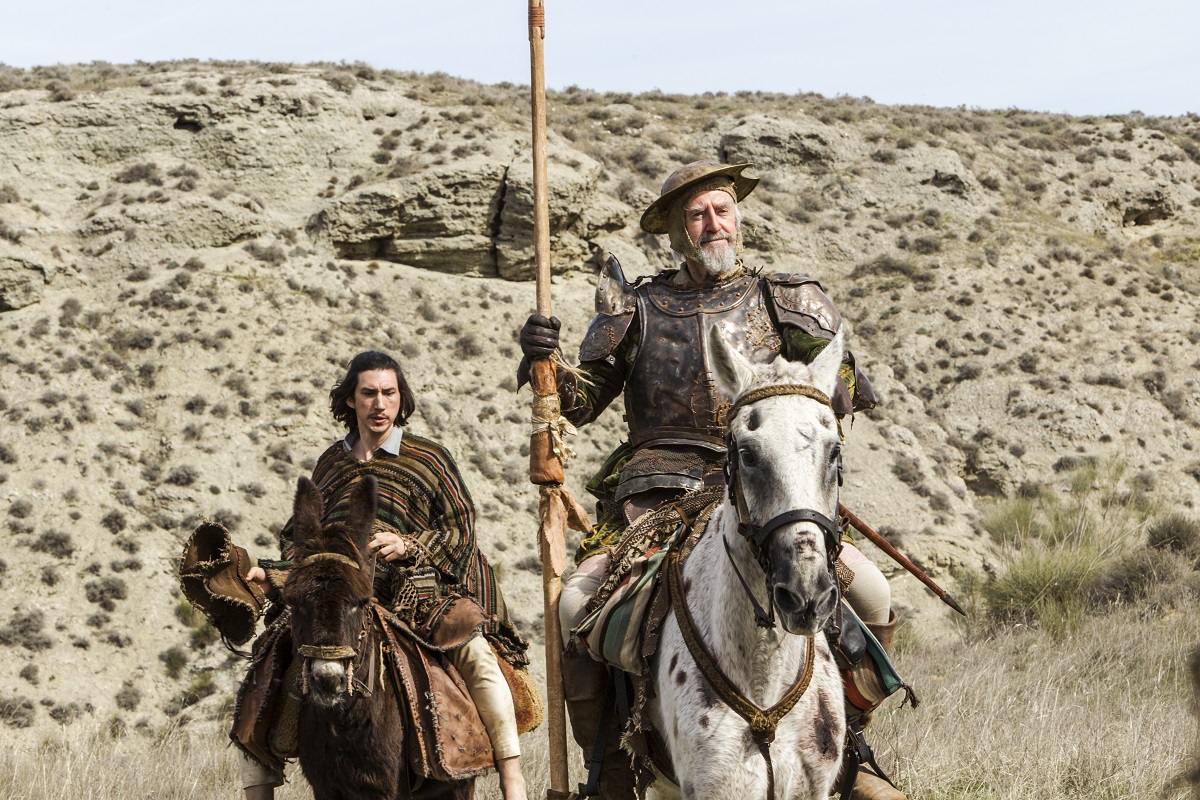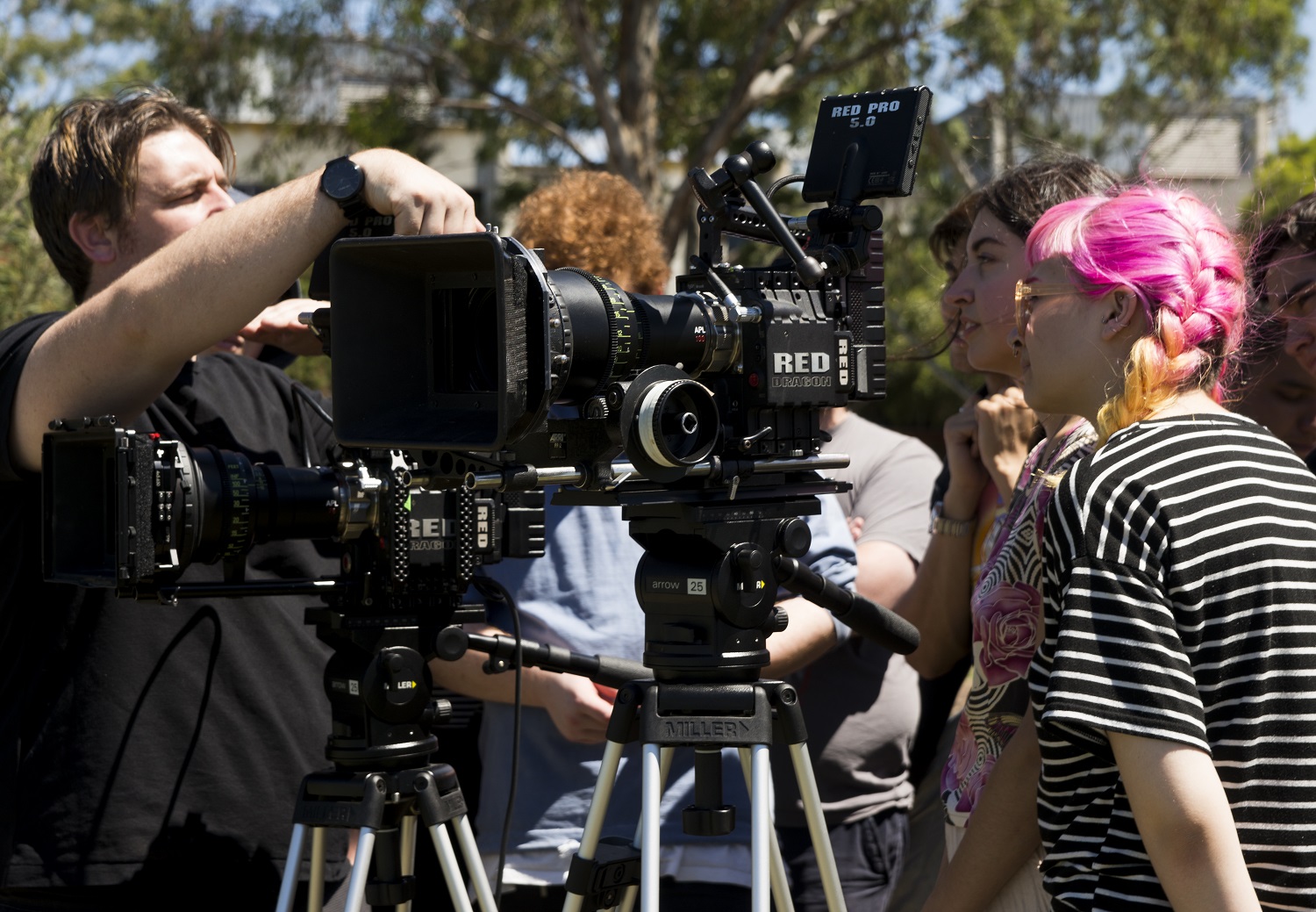Now Quixote, like its flea-bitten nobleman who imagines himself a knight, shows that reality can be less entertaining and less useful than legend.
The film follows not Quixote but Toby, (Adam Driver) a once-passionate filmmaker who now directs à la George Lucas, slouched in a chair with one eye on the film he’s supposedly making. On break from shooting his own adaptation of Cervantes’ book on location in Spain, Toby runs into Javier, (Jonathan Pryce) a shoemaker who starred as Quixote in Toby’s student film a decade ago. Now, Javier believes he really is the knight, and he press-gangs Toby into acting as his squire as the two set off on an adventure across the countryside.
The recursions are endless: this is a film about a director who fails to adapt Don Quixote, made by a director who spent the ‘90s failing to adapt Don Quixote, featuring a shoemaker who believes he is a provincial nobleman who believes he is a knight.
Like Gilliam’s Imaginarium of Doctor Parnassus, Quixote is constructed from 500 or so fascinating ideas glued haphazardly together. Driver is hilariously cynical, and Pryce is perfectly unironic, vulnerable in his deluded self-confidence – the only way the Knight of La Mancha ought to be played.
Gilliam’s expert command of the surreal is on display as the film grows increasingly fantastic, as is a real wistfulness for the era before hashtags and committee-made superhero films. The film’s most stirring moments spark from the friction between Toby’s glib narcissism and the untenable idealism of Javier/Quixote and Toby’s own younger self.
On the other hand, no amount of wide-angle surrealism – or the raw pleasure of seeing the windmill scene put to celluloid well for the first time – can make disorganised and meandering plotting a pleasure to experience. Particularly frustrating is the film’s endless third act, which suddenly introduces a Weinstein-like Russian oligarch (Jordi Mollà) who seems to be the main villain. There’s also a complicated and uninteresting subplot involving Toby’s romantic entanglement with Angelica (Joana Ribeiro) and Jacqui, (Olga Kurylenko) who are the Good Woman and the Bad Woman, respectively.
The Cambridge Dictionary defines ‘quixotic’ as, “having or showing ideas that are different and unusual but not practical or likely to succeed.” I’ll leave it to you to make clever remarks.
2/5

